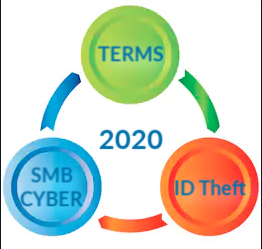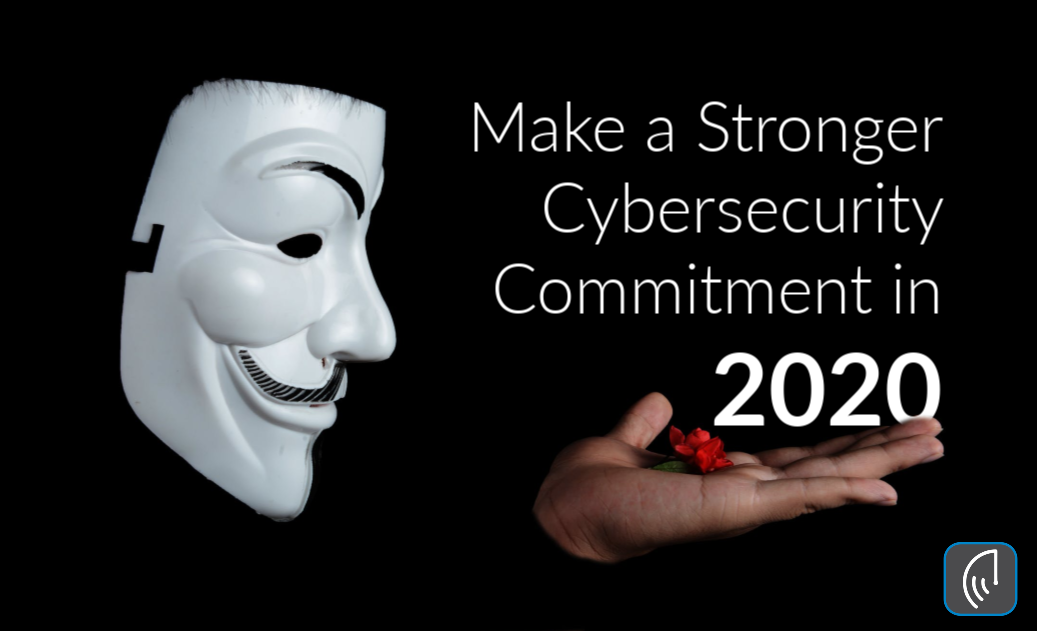Every consumer and small business owner needs to make a stronger cybersecurity commitment in 2020 to safeguard personal and business information.
To help with your cybersecurity commitment, we are highlighting three important topics:

- Identity theft terms,
- consumer need-to-knows,
- and small business best practices.
First, Consumer Affairs has an identity theft glossary that serves as a great reminder to the current threat environment including:
- Keylogger: A keylogger is a computer program that records a person’s keystrokes to obtain confidential data.
- Phishing: Phishing is a popular type of internet scam in which fraudsters send emails claiming to be from a reputable company to trick individuals into revealing personal information.
- Smishing: Similar to phishing, smishing (or SMS phishing) is when someone attempts to mine sensitive information under a fake identity through text messages.
- Vishing: Like phishing or smishing, vishing is when an identity thief attempts to gain sensitive information over the phone.
Second, consumers need-to-know how to protect themselves from becoming a victim of ID theft:
- The use of strong and up-to-date Wi-Fi security, strong password management, two-factor authentication, and the use of a VPN on public Wi-Fi.
- Take the time to track credit and debit card transactions by regularly checking online banking activity for any suspicious activity.
- Have a heightened awareness of harmful phishing, smishing and vishing scams that can be extremely harmful.
Third, small business needs to implement cybersecurity best practices to help mitigate their exposure from identity theft and data breach events:
- Annual employee education should be the No. 1 priority. Education is key, the threat level is rising and you don’t want it to sink your business because your employees are not educated.
- Your small business needs to create, test and update a written information security and governance policy annually, including penetration testing and a simulated data-breach event.
- Consider adding cyber liability insurance to help respond to evolving state and federal breach notification laws since most small businesses lack the financial and human resources to respond to a data breach.
Unfortunately, as we learn and get better, so do the criminals. It is our responsibility to stay educated and protect ourselves and employees. Ring in 2020 with a stronger cybersecurity commitment to help reduce your cybersecurity risks.
By Mark Pribish
Vice President and ID Theft Practice Leader
Learn more about breaches as small businesses here: 43% of Breaches Affect Small Businesses
